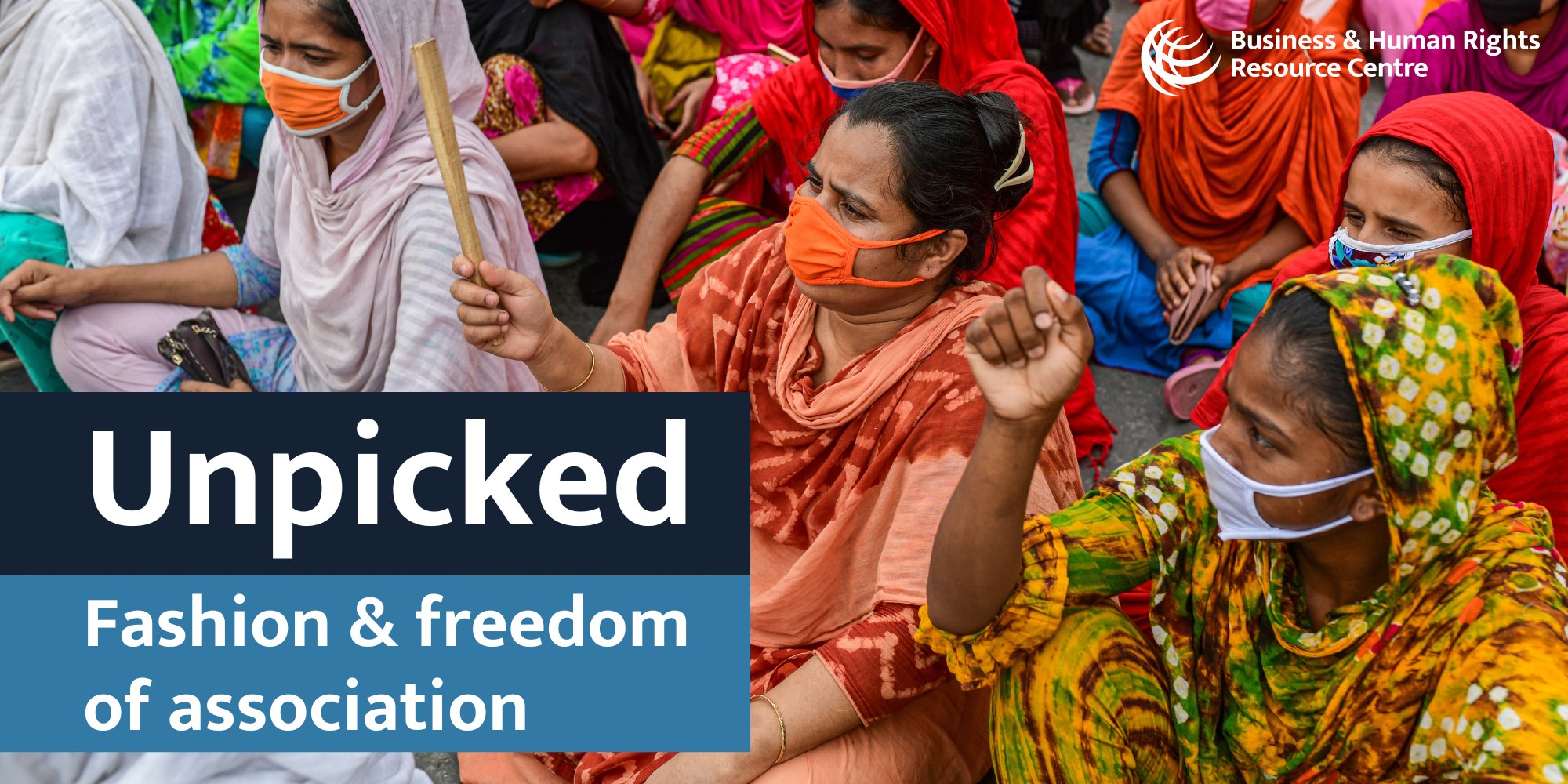
Unpicked: Fashion & Freedom of Association
Read the latest report from Business & Human Rights Resource Centre on the crackdown on trade unions and worker exploitation in Asia’s garment sector. The report highlights allegations of union-busting and related abuse at 13 factories.
Unpicked; Fashion and Freedom of Association outlines how union leaders continue to face discrimination, threats, violence, false charges and arrests, with factories persistently using COVID-19 as a pretext for these attacks and other attempts to suppress organising efforts and suspend collective bargaining agreements. The suppression of trade union rights that spiked in the early days of the pandemic is today becoming the norm, with devastating impacts for garment workers. Without a collective voice and protection, women workers face declining wages, more precarious work, longer hours, and abuse and harassment on the factory floor.
The 13 factories covered by the report supply, or have recently supplied, at least 15 global fashion brands and retailers, including adidas, Asda, Benetton Group, Bestseller, C&A, Sainsbury’s, Etam, H&M, Hugo Boss, J.Crew, OVS SpA, Mango, Next, Primark and Under Armour.
Workers’ right to organise for decent work and a living wage are fundamental to advances for the millions of women workers making our clothes and shoes for poverty wages. This right has become even more important under the stresses of the COVID-19 pandemic. The report interviewed 24 trade union leaders and surveyed 124 union activists and labour advocates in Bangladesh, Cambodia, India, Indonesia and Sri Lanka, with nearly two thirds (61%) of survey respondents reporting the situation for freedom of association and collective bargaining has “got worse” since the pandemic. Almost half (48%) of respondents revealed an increase in discrimination, intimidation, threats and harassment of trade union members.
“The factories used the pretext of the pandemic to violate freedom of association. They said the situation is so bad, we aren’t getting enough orders, if you talk or question then we can’t do anything, and we will have to close the factory. This is how they kept unions silent.” - Raju, activist at Garment Labour Union (GLU) in India.
These findings demonstrate the need for governments, brands and suppliers to take action to ensure the right to freedom of association is protected across supply chains. They clearly show the need for due diligence beyond social auditing, proactive brand engagement with suppliers in order to protect freedom of association, and the introduction of mandatory human rights due diligence frameworks. Brands and suppliers are encouraged to enter good-faith dialogue with workers and their representatives through collective bargaining and binding agreements between key stakeholders.